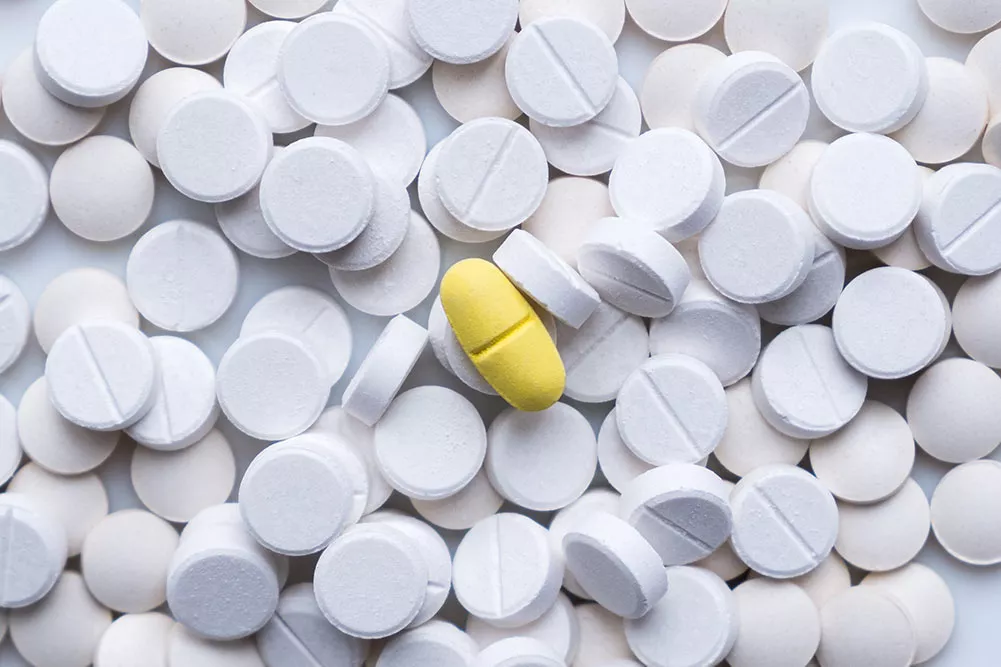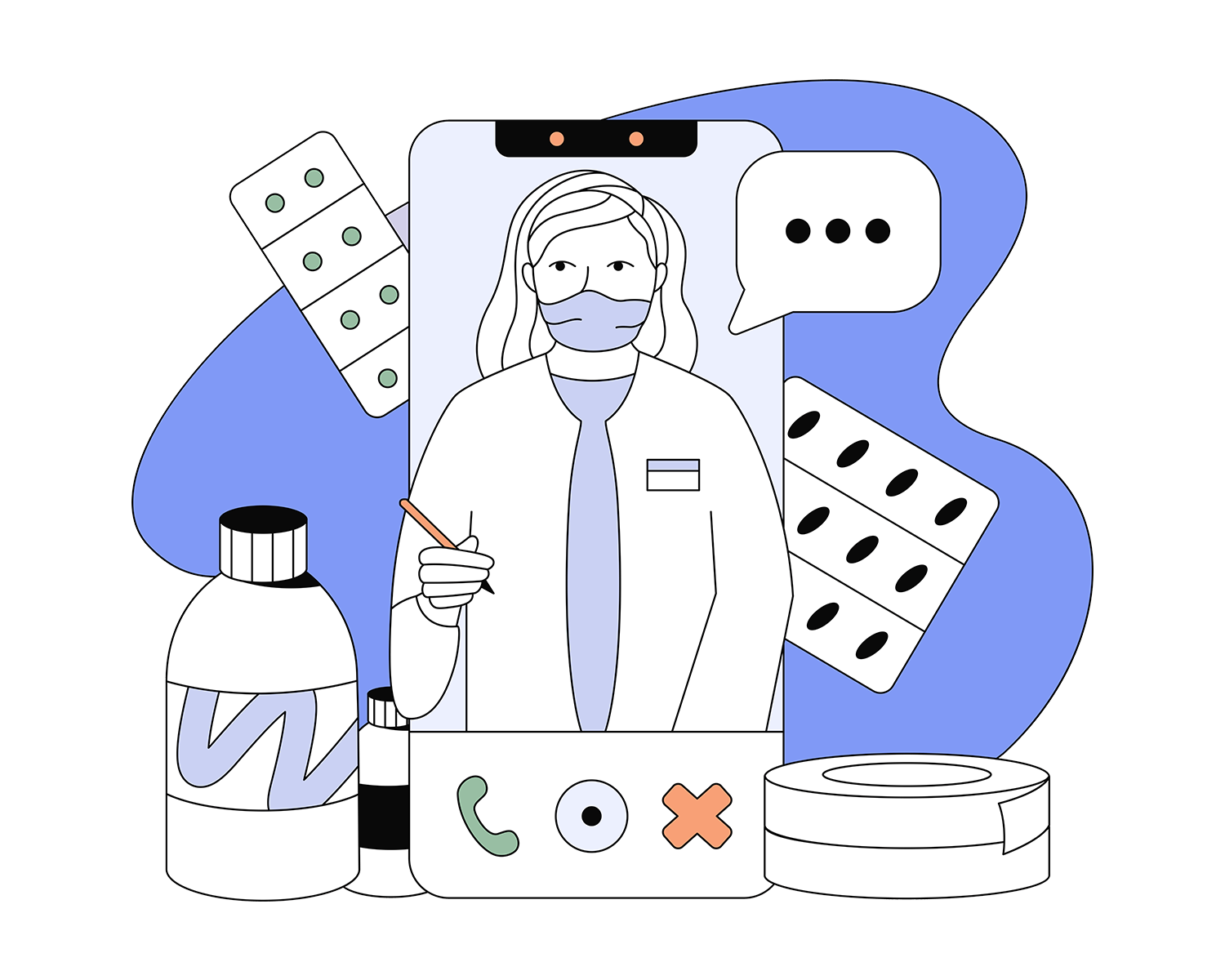The 2021 National Survey on Drug Use and Health revealed that around 30 million people over the age of 12 have an alcohol addiction, 24 million have a substance use disorder, and 9 million struggle with opioid addiction. This accounts for approximately 16 percent of the population, making addiction an undeniable part of our society. Trying to quit using substances or drinking alcohol can be very difficult, and withdrawal can be a big deterrent. Withdrawal can be very dangerous, even fatal, so it’s important to know the risks and what options are available for safety.
Going “cold turkey” is a phrase given to the act of abruptly stopping exposure to an addictive substance. While this may feel like a good way to wipe the slate clean and start anew, it can be physically and mentally taxing. When we use a substance, usually daily, we can develop a dependence on it as our bodies adapt to the new normal state. When you remove the substance without gradually weaning, your body can have an extreme response. For some substances, like alcohol and benzodiazepines, this reaction can be deadly. This is why medical detox is an important step to safely start on the path to recovery.
Medical detox is when you safely get off a substance with the help of a medical professional. The process can be completed inpatient or outpatient based on your physical presentation, needs and preferences.
During detox, the medical team will monitor your condition and provide treatments to ease the symptoms of shock and withdrawal while the drugs or alcohol leave your system and your body learns how to function again without the substance in your bloodstream.
If you have been in physical danger while detoxing before, you likely need medical care to safely go through it again. Getting severely sick without your substance is a sign, and you especially need inpatient medical supervision if you have ever experienced seizures, cardiac problems, or hallucinations while in withdrawal.
The process begins with the evaluation process to determine the severity of your physical addiction, or how much your body has come to rely on the substance, and how bad your withdrawal symptoms are likely to be.
If your withdrawal is likely to be dangerous, you will be referred to or admitted to an inpatient facility for treatment and monitoring. If you are getting assessed by an outpatient facility and there are no extreme risks per their evaluation, they will provide you with instructions and medication to help ease symptoms of withdrawal from the comfort of your own home.
Inpatient medical detox is when you spend time in a hospital or clinic during your cleansing period. This provides the greatest medical attention, but in trade for privacy and familiar surroundings. The inpatient process is also more expensive and can be disruptive to your life, however it can reduce the risk of immediate relapse since you will not have access to your substance of choice.
Outpatient medical detoxing allows you to be at home with a medical professional on-call or providing check-ins for help treating withdrawal symptoms. It can allow you to maintain your regular routine and go to work during the day while still getting medical oversight as your body adapts to the change, however most individuals are advised to take it easy and not go to work during the process. There is a higher risk for immediate relapse with outpatient detox if there is access to your substance of choice or triggers that remind you of it.
The level of care you need depends on the severity of your withdrawal symptoms, cost of treatment, and personal preferences.
Many different substances require medical observation during the detoxification process because severe withdrawal symptoms can pose a risk to your health and sometimes even result in death. These are substances that your body comes to rely on, and may experience shock when access to the substance is stopped completely.
Symptoms of alcohol withdrawal include tremors, sweating, rapid pulse/palpitations, anxiety, nausea, headache, insomnia, transient visual and auditory hallucinations, disorientation and sometimes seizures.
Medications for alcohol detox include sedatives or anxiolytics including Librium, Valium, Ativan, Serax and Neurontin.
Symptoms of opioid withdrawal include rapid pulse, sweating, restlessness, runny nose/watering eyes, yawning, nausea, vomiting, diarrhea, stomach cramping, anxiety, irritability and insomnia.
Common medications for opioid detox include medications to lessen overall withdrawal such as buprenorphine and naloxone/Suboxone in addition to medications for withdrawal symptoms including clonidine, hydroxyzine, ondansetron, and ibuprofen.
Symptoms of benzodiazepine withdrawal include irritability, fatigue, anxiety/panic attacks, trouble focusing, nausea/loss of appetite, burning sensations, racing pulse, tremor, headaches/head pressure, muscle aches, insomnia, weakness, visual disturbances, and seizures.
Common medications for benzodiazepine detox include using longer-acting benzodiazepines to help taper off, including the medications Klonopin, Valium, Librium, Serax and Ativan.
Inpatient detoxification typically lasts up to two weeks. While a complete withdrawal experience can take much longer as many substances can have a post-acute withdrawal syndrome that can last for months, typically the greatest risk to your physical health has passed after one to two weeks without the substance. Inpatient medical observation during this initial period ensures that you are safe if severe withdrawal symptoms develop. If you are appropriate for outpatient detox, then you can be provided with medications to reduce the risk of the most severe symptoms and treatments to reduce the suffering you experience as your body’s systems are cleared of the substance and after-effects.
After the first few weeks, it should be safe to transition to a lower level of care if you went to an inpatient facility, though you may choose to remain part of an inpatient rehab program, which will provide support and resources as your body continues to – more safely – adapt to existing without the substance.
Inpatient medical detox is the safest possible way to stop drinking alcohol or taking substances. Even if you experience seizures, cardiac arrest, or dangerous hallucinations, the medical team on-site will ensure that you live through the experience. Outpatient detox is the second safest option for individuals with less severe withdrawal symptoms and can be helpful to learn how to deal with temptations while in your own environment.
Once you complete medical detox, it’s important to get involved in ongoing addiction treatment. This is important as many alcohol and substance use disorders can be chronic and relapses are common. Additionally, post-acute withdrawal symptoms may still require attention. If you choose to continue with an inpatient program, you will have the most support and least risk for relapsing while there. Another option is to enroll in an intensive outpatient program or partial hospitalization program where you can still live at home but have a great deal of support and programming throughout the day to help with symptoms and learn alternative coping skills. If you do not have a high risk for relapse and have a supportive home environment, outpatient treatment is beneficial and can help you fall back into your normal routine as you pursue newfound sobriety on the other side of the physical cleanse.
All types of programs can provide medications for withdrawal and craving management, psychiatric treatment for symptoms that were being self-medicated with substances and alcohol, and gaining support and motivation to prevent relapse.
Eleanor Health offers an alcohol and substance use outpatient recovery program that can connect you with care professionals virtually. We believe in a whole-person approach that focuses on building a comprehensive better life for our community members, including outpatient detoxification, long-term recovery support, and psychological/psychiatric treatment.
We can help you maintain your sobriety goals through connection and professional care. Contact us today to learn more.
 Naltrexone Uses in Addiction Treatment
Naltrexone Uses in Addiction Treatment
 Vivitrol and Drinking: What You Should Know About Vivitrol and Alcoholism
Vivitrol and Drinking: What You Should Know About Vivitrol and Alcoholism
 Benefits of Switching From Methadone To Suboxone
Benefits of Switching From Methadone To Suboxone